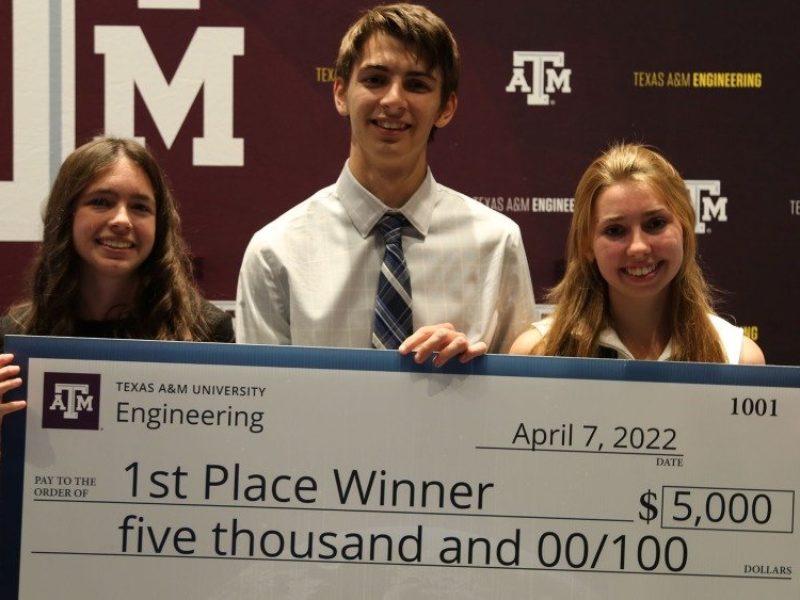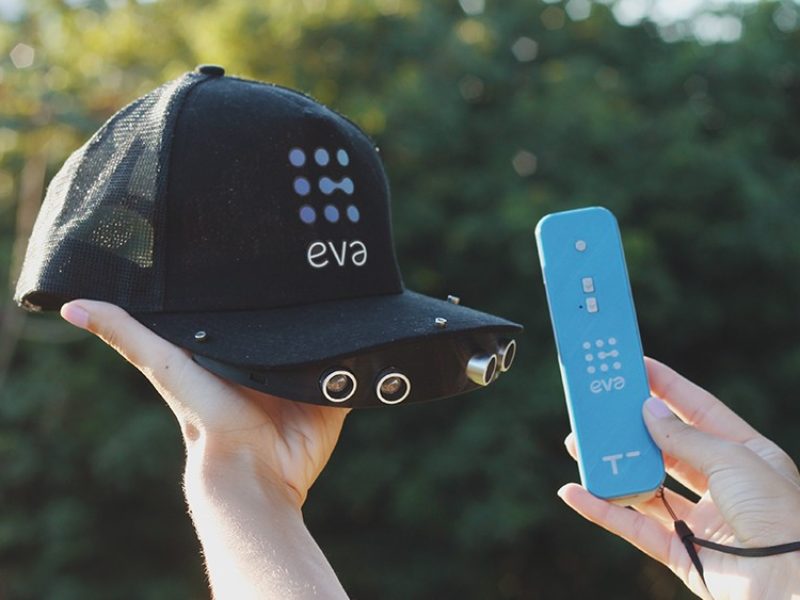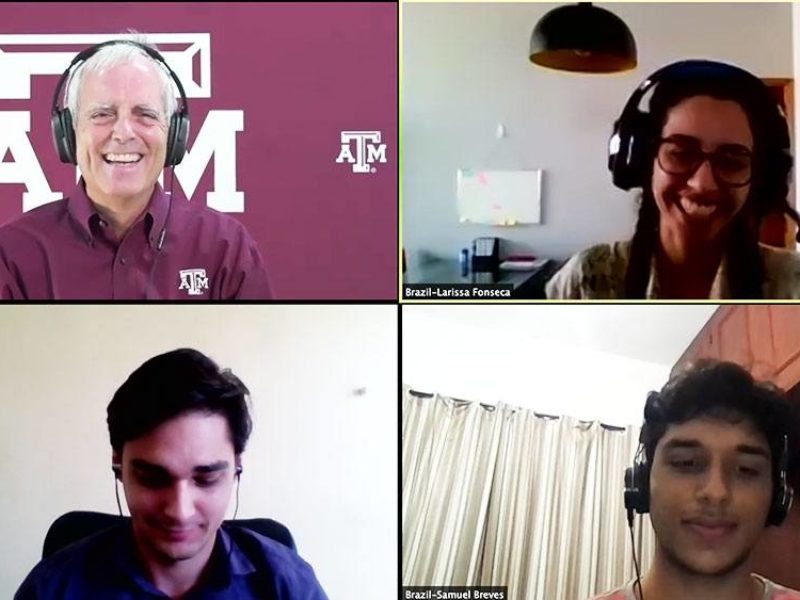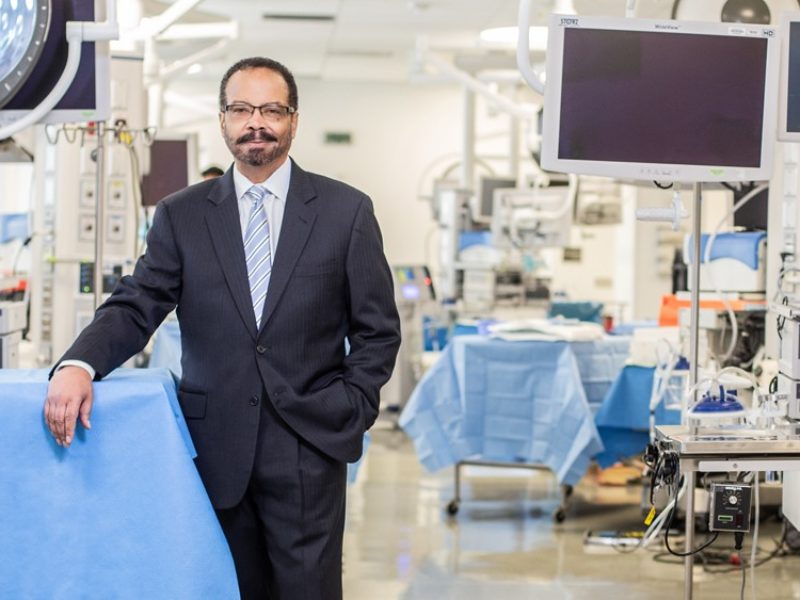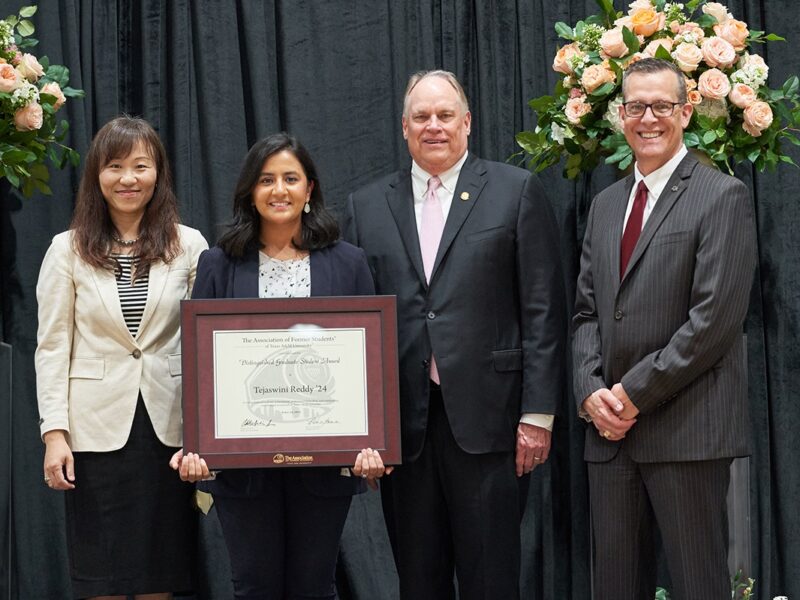Students Take On Global Challenges At Third Invent For The Planet

For the third year, Texas A&M University hosted Invent for the Planet – a 48-hour intensive design competition that took place at more than 30 universities around the world last week. Students developed solutions for major issues facing society that have arisen as our world continues to modernize and become more populated.
Over the course of two days, students at each campus formed teams, developed a plan and prototype, created a business plan and pitched it to a panel of judges.
In March, a panel of international judges will select the top five teams from around the world, and those teams will travel to Texas A&M for a final pitch competition to be held March 31- April 2. The winner will be named the champion of Invent for the Planet 2020.
The last plastic straw

Christine Figgener ’18, a Texas A&M former student and independent marine conservation biologist based in Costa Rica, served as a challenge moderator, mentoring students around the world through the Microsoft Teams environment. During the course of the weekend, she visited with Texas A&M students in person, offering guidance as they developed solutions for reducing single-use plastics and cleaning up the oceans.
Figgener is known for a viral video she created in 2015 when she and her team found a sea turtle with a plastic straw stuck in its nose. Since then, a global movement to use reusable straws was born, and Figgener has become the face of that movement.
“It was really the moment that was the last plastic straw, so to say, because it’s an item we use pretty much on a daily basis,” Figgener said. “It could have been from any one of us. That is when I started campaigning against single-use plastics and ocean plastic pollution and how we as consumers can make changes that will positively affect the outcome of that.”
Figgener said she was thrilled to serve as a mentor.
“I think it’s absolutely incredible when young people try to solve the big issues of our time,” she said. “I’m not an engineer, but I do have a science degree in marine biology and I have gathered a lot of experience working with different solutions to the ocean plastic pollution issue over the years. I’m incredibly impressed with the attitude of all the students. They seem super excited to take on such a big issue. I think it’s a bit of an overwhelming issue but they are so motivated to do their best and were grateful for the input I was able to provide.”
Around-the-world collaboration
Priyanka Ambati ’20, a biomedical engineering major, said Figgener helped her team address ways that they could make a difference on reducing single-use plastics on campus.
“We’re developing a campaign model for this campus to promote sustainable use, and we’re starting out by spreading awareness about the presence of single-use plastics and providing alternatives,” she said.
Ambati and her team spoke with students in the United Kingdom and Uganda through the Microsoft Teams environment.
“It doesn’t feel like a competition because it’s so awesome working on the same problems,” Ambati said. “It doesn’t matter if we win this or not. We want to pursue this and make a difference. This is about making an impact.”
Ambati said her team plans to continue innovating their rewards-based app after Invent for the Planet.

Texas A&M’s winning teams
Ecotory, the first-place team from Texas A&M, developed an app that allows airline passengers to exchange unwanted meals and amenities for airline miles. It also allows airlines to better gauge passenger needs that integrate with their inventory systems.
“Ten billion pounds of waste is produced every year by airline passengers,” said Emily Gonzalez, senior biomedical engineering student. “Twenty to 30% of that waste is from untouched food and beverages. What is really interesting about our need statement to me is the lack of knowledge on the passenger side. They may just throw away their plastic and half-eaten food, but they don’t realize the huge impact this is having on the environment.”
Whether their innovation makes it to the final five or not, the team wishes to continue looking into commercializing their innovation through Engineering Inc., the College of Engineering’s incubator program.
The second-place team, Aero-Stainable, created a web-based interface that would allow airline passengers to select their food choices when purchasing their tickets.
Third-place team CITY SEEDS worked to reduce energy consumption and carbon emissions in densely populated areas by using hydroponic plants and kinetic energy from footsteps to power LEDs simulating sunlight.
The Texas A&M presentations are available to watch online. The final five finalists will be announced in early March. Sponsors of the event were RS-Grassroots and SOCAR AQS.
This article by Kristina Ballard originally appeared on the College of Engineering website.
